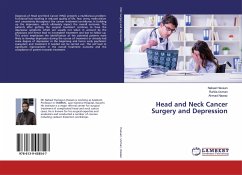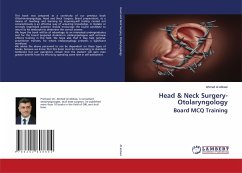Diagnosis of Head and Neck Cancer (HNC) presents a multifarious problem. Functional loss resulting in reduced quality of life, fear, stress, malnutrition and uncertainty throughout the cancer treatment contributes in building up the depression, which ultimately impact the overall outcome. The patients after getting the surgical treatment continue to have the depressive symptoms which are usually not taken in account by the physicians and hence lead to incomplete treatment and lost to follow up. This article emphasizes the identification of the potential patients most likely to develop depression during the course of treatment or already had some degree of depression in the beginning and hence early psychiatric evaluation and treatment if needed can be carried out. This will lead to significant improvement in the overall treatment outcome and the compliance of patient towards treatment.
Bitte wählen Sie Ihr Anliegen aus.
Rechnungen
Retourenschein anfordern
Bestellstatus
Storno








